Research Lab Results
-
Arturo Casadevall Lab
The Arturo Casadevall Lab uses a multidisciplinary approach to explore two key topics within microbiology and immunology: how microbes cause disease and how hosts can protect themselves against those microbes. Much of our research focuses on the fungus Cryptococcus neoformans, which frequently causes lung infections in people with impaired immunity. We also work with the microorganism Bacillus anthracis, a bacterium that causes anthrax and is frequently used in biological warfare. Our goal is to devise antibody-based countermeasures to protect against this and other similar threats.
-
Andrea Cox Lab
Research in the Andrea Cox Lab explores the immune response in chronic viral infections, with a focus on HIV and the hepatitis C virus (HCV). In our studies, we examine the role of the immune response upon exposure to HCV by examining responses to HCV in a longitudinal, prospective group of high-risk individuals. This enables us to compare the innate, humoral and cellular immune responses to infection with clearance versus persistence. Through our findings, we seek to identify mechanisms of protective immunity against HCV infection and improve HCV vaccine design.
-
Antony Rosen Lab
Research in the Antony Rosen Lab investigates the mechanisms shared by the autoimmune rheumatic diseases such as lupus, myositis, rheumatoid arthritis, scleroderma and SjogrenÕs syndrome. We focus on the fate of autoantigens in target cells during various circumstances, such as viral infection, relevant immune effector pathways and exposure to ultraviolet radiation. Our recent research has sought to define the traits of autoantibodies that enable them to induce cellular or molecular dysfunction. We also work to better understand the mechanisms that form the striking connections between autoimmunity and cancer.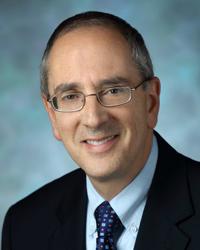
-
Ari Cedars Laboratory
Ari Cedars, M.D., and his team have three primary research goals. First, the Cedars Lab is interested in patient-centered outcomes in congenital heart disease, which they investigate using a digital tracking system to record participants’ symptoms and quality of life. Second, the Cedars Lab investigates outcomes with mechanical circulatory support and transplant in congenital heart disease, with a focus on those with end-stage heart disease and a Fontan circulation. Third, the Cedars Lab is interested in the biological mechanisms underlying circulatory deterioration and end-organ dysfunction in patients with a Fontan circulation.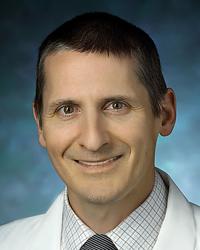
-
Balagopal Lab - Viral Hepatitis and Translational Virology
The Balagopal Lab has adapted high-resolution tools to study viruses in situ. Specifically, we were the first to quantify hepatitis C virus (HCV) infection in single hepatocytes by developing single-cell laser capture microdissection (scLCM) and integrating this tool with highly sensitive quantitative real-time PCR. We reported that HCV infects a minority of hepatocytes that are found in geospatial clusters. More recently, we (PIs Balagopal and Thio) integrated scLCM with droplet digital PCR (ddPCR) to reveal the first observations of hepatitis B virus (HBV) infection at single cell resolution in the liver. We found that HBV infects nearly all hepatocytes prior to antiviral therapy. However, during antiviral therapy, HBV infection is diminished while viral transcription is markedly attenuated. Our lab has also focused on HIV-1 infection and immune activation for over a decade. Most recently, we have studied type 1 interferon responses to HIV-1 using RNA sequencing (RNAseq). Using this technology, we identified novel interferon-stimulated genes (ISGs) that are associated with HIV-1 restriction in vivo.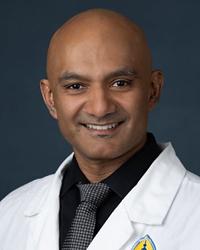
-
Alex Kolodkin Laboratory
Research in the Alex Kolodkin Laboratory is focused on understanding how neuronal connectivity is established during development. Our work investigates the function of extrinsic guidance cues and their receptors on axonal guidance, dendritic morphology and synapse formation and function. We have investigated how neural circuits are formed and maintained through the action of guidance cues that include semaphorin proteins, their classical plexin and neuropilin receptors, and also novel receptors. We employ a cross-phylogenetic approach, using both invertebrate and vertebrate model systems, to understand how guidance cues regulate neuronal pathfinding, morphology and synaptogenesis. We also seek to understand how these signals are transduced to cytosolic effectors. Though broad in scope, our interrogation of the roles played by semaphorin guidance cues provides insight into the regulation of neural circuit assembly and function. Our current work includes a relatively new interest in understanding the origins of laminar organization in the central nervous system. -
Amita Gupta Lab
The Amita Gupta Lab focuses on drug trials to prevent and treat HIV, tuberculosis (TB) and other co-morbidities in adults, including pregnant women and children who reside in low-income settings. We also conduct cohort studies assessing HIV, inflammation and nutrition in international settings; TB in pregnancy; and risk factors for TB in India (CTRIUMPH). We collaborate with several faculty in the Center for TB Research, Division of Infectious Diseases and the School of Public Health.
-
Alan Baer Lab
Research in the Alan Baer Lab focuses on Sjogren's syndrome. Previously, we conducted the Sjogren's International Registry (SICCA), enrolling 300 patients and creating a valuable source of clinical data and biospecimens for research we're conducting with colleagues at Johns Hopkins and the University of California-San Francisco. Currently, we're conducting a longitudinal observational study of patients with Sjogren's syndrome. We're also collaborating with Dr. Ben Larman in the Department of Pathology, using phage immuno-precipation sequencing to work on a characterization of the complete autoantibody repertoire in Sjogren's syndrome patients.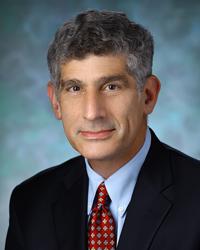
-
The Atlantic Cardiovascular Patient Outcomes Research Team - Atlantic C-PORT
Our research is centered on the safety, efficacy and outcomes of PCI performed at hospitals without on-site cardiac surgery. Active projects: C-PORT Randomized Studies and Registries; New Jersey Angioplasty Demonstration Project; InCar-decision support tools for performance of PCI at hospitals without on-site cardiac surgery. For more information please visit Cport.org.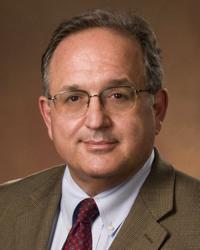
-
Agrawal Lab
The Agrawal Lab is focused on the medical and surgical treatment of otologic and neurotologic conditions. Research is focused on the vestibular system (the inner ear balance system), and how the function of the vestibular system changes with aging. Particular focus is given to study how age-related changes in vestibular function influence mobility disability and fall risk in older individuals.
